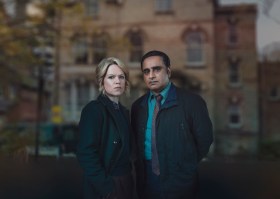Given the current climate surrounding tertiary education in the United States, there’s no better title for filmmaker Andrew Rossi’s look at post-secondary schooling than Ivory Tower. At once, it encapsulates the wealth of concepts and concerns swirling around the subject of higher learning: the prohibitive cost that precludes many, and leaves others starting their careers with crippling financial burdens; the courses that impart theoretical knowledge, but are distanced from real-world job skills; the pressure for prestige, both in students chasing popular degrees, and in colleges expanding their facilities to seek higher rankings, without considering the practicalities.
That’s only the introduction to the content-heavy documentary, or the University Issues 101 primer for the advanced syllabus to follow. The facts flow thick and fast, building an ever-strengthening argument that confirms the film’s central position: that America’s college system, as a whole and in a generalised sense, can no longer avoid their snowballing problems causing an avalanche of societal troubles. Education as a public good is a long-abandoned concept – it is now a private benefit, Ivory Tower contends. With that change of thinking came a host of consequences, causing many to wonder if – in terms of the cost versus the reward – tertiary study is overrated.
As just a snapshot of the data quoted, US levels of student loan debt now exceed over one trillion dollars, tuition fees have increased 1120% since 1978, and the growth in administration staff – and executive salaries – is similarly substantial. Not everything paints such a dire picture; conversely, the nation has provided post-secondary schooling to a larger percentage of its population than any society in history. These figures linger over Rossi’s comprehensive chronicle of everything from recruitment sales pitches to the burgeoning UnCollege movement to the future of massive open online courses. Talking heads and case studies combine in a whirlwind of knowledge on the state of imparting knowledge at the university level.
Ivory Tower is a dense affair, though one deftly edited together; however it is also a documentary that knows when to take pause for thought. As he did in his last effort, Page One: Inside the New York Times, writer/director Rossi appreciates the value of spending time to cover specific circumstances relevant to his cause in greater depth. In fact, the detours taken to places such as Deep Springs (an alternative college in California that combines academia with labour and self-government) and Cooper Union (a historically tuition-free institution met with protests when it considers introducing fees) are perhaps more illuminating than the rush that surrounds them.
That’s one of the ramifications of trying to do too much, even with the best of intentions – a parallel the feature could be seen to share with its subject. For all the questions raised and aspects of the topic touched upon, Ivory Tower doesn’t offer answers, nor does it purport to. Indeed, what the film champions is critical thinking, not only in students at college, but in the nation’s approach to the sector. After consuming its onslaught of information, it is impossible not to ponder the portrait it presents, or to wonder about the future to come.
Rating: 3.5 stars out of 5
Ivory Tower
Director: Andrew Rossi
USA, 2014, 90 mins
Human Rights Arts and Film Festival
hraff.org.au
Melbourne: 7–21 May
Canberra: 22–25 May
Sydney: 26–30 May
Darwin: 30 May – 1 June
Brisbane: 2–4 June
Perth: 2–4 June
Alice Springs: 5–7 June
Actors:
Director:
Format:
Country:
Release:





